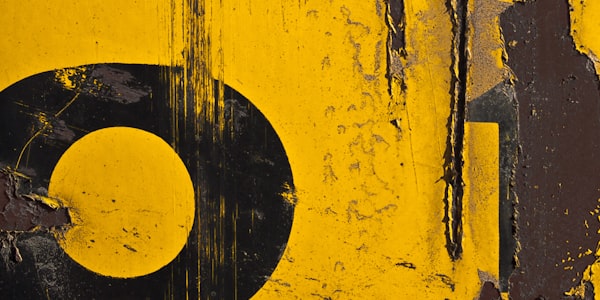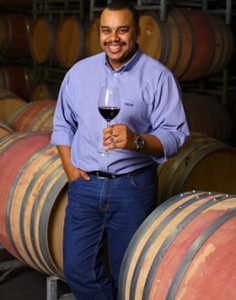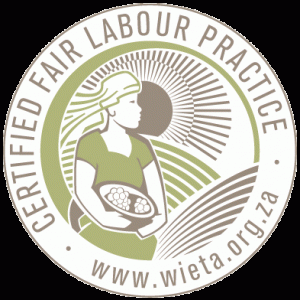If you want to see what all the hype around Fairtrade wine tastes like, a bottle of Place in the Sun Cabernet Sauvignon 2010 for R45 makes it crystal clear why Fairtrade wine sales in SA trebled from R18.4m in 2010 to R73.2m in 2011, or 255,600 bottles. Far from being the pits, PITS Cabernet 2010 is an understated masterpiece and a solar credit to cellar master Deon Boshoff (below) and his team at Zonnebloem, the dark horse in Distell’s stable. As an aside, to be a successful Fairtrade winemaker, is the surname Boshoff a requirement? A question best asked of Tertius Boshoff, winemaker at Stellenrust, whose Olympic Fairtrade wines monopolize foreign and local media coverage.
Last year, the Fairtrade category grew 12% in the UK while in Fairtrade’s first and oldest market, the Netherlands, Fairtrade sales in stores and restaurants rose 24%. Around the globe, retail sales of Fairtrade certified products increased 12%. SA producers cannot ignore this fact, especially with total wine sales to the UK down to 86 million litres in the year to June 2012 from 90 million previously, no matter how WOSA may try to spin it and confuse “ignorant” producers with bulk and bottled messages telling conflicting stories, depending on whether you read them in English or Afrikaans.
The Fairtrade brand is already recognized by over 36% of Europeans, which makes the establishment of a competing WIETA brand, criminally insane. Rather than try to establish a parallel activity, SA wine owes it to the hundreds of thousands of hard-pressed SA wine farm workers to put workers’ interests to the fore, rather than the political ambitions and self-enrichment of a few fat cats. Does WIETA really think it can compete against a $6.6 billion Fairtrade success story that has been running for 25 years? SA wine needs to take a good, hard look at WIETA tout suite to avoid the Fundi fiasco which spent millions training an invisible generation of sommeliers.
SA is already the leading market for Fairtrade in the developing world and the first developing country to make Fairtrade products available to local consumers on a large scale, with PITS a shining example. Boudewijn Goossens, executive director of Fairtrade Label SA, comments “SA consumers are in a great position: we have the ability to buy Fairtrade products in support of small-scale farmers and farm workers on the continent and directly contribute to a more equal and sustainable Africa. The success of Fairtrade in South Africa has encouraged organisations in other emerging markets such as Kenya, Argentina and Brazil to follow the example”.
An expensive WIETA side-show with its own accreditation seal (above) and duplicated bureaucracy, risks confusing consumers and wasting resources desperately needed to market SA ethically traded wine around the world.





